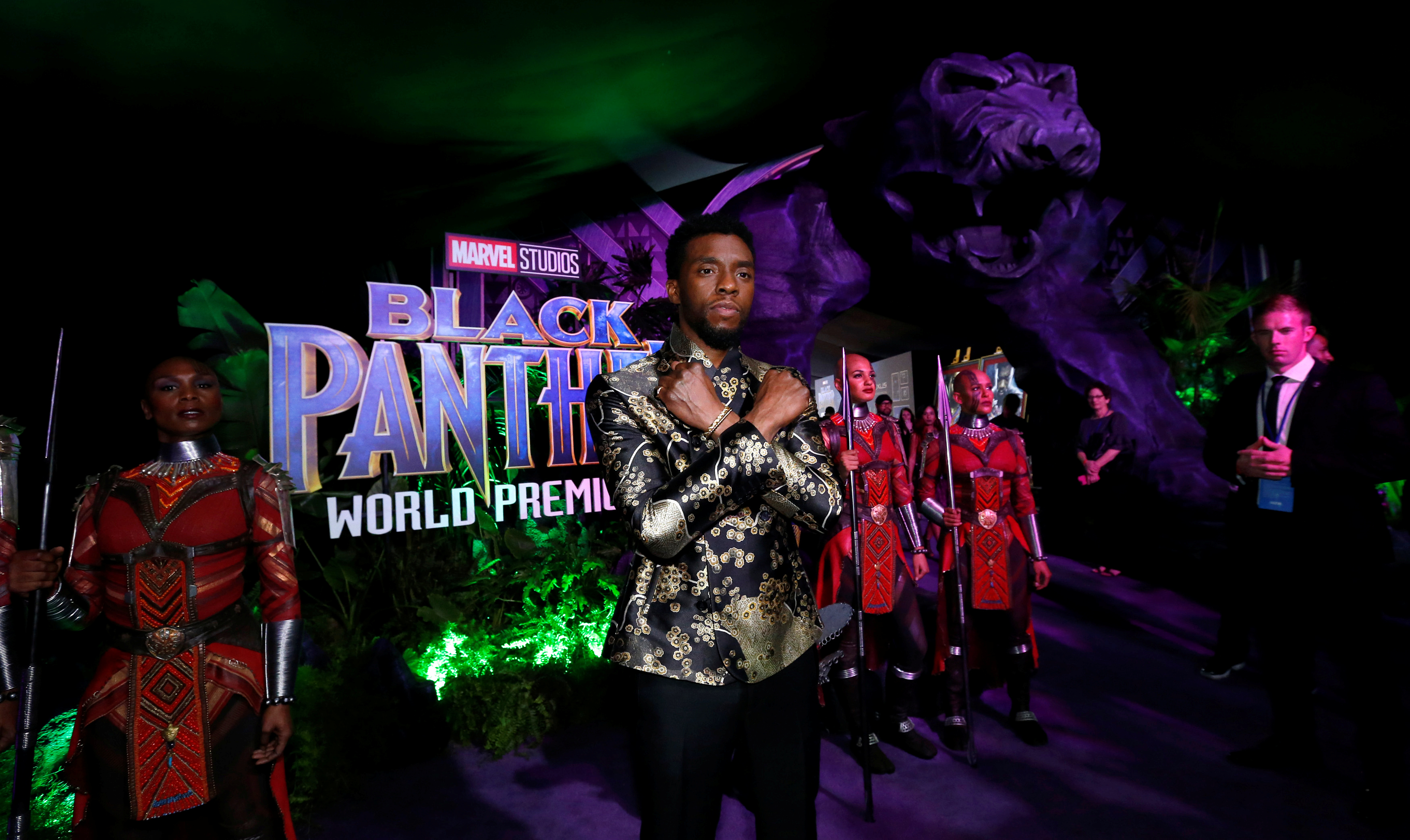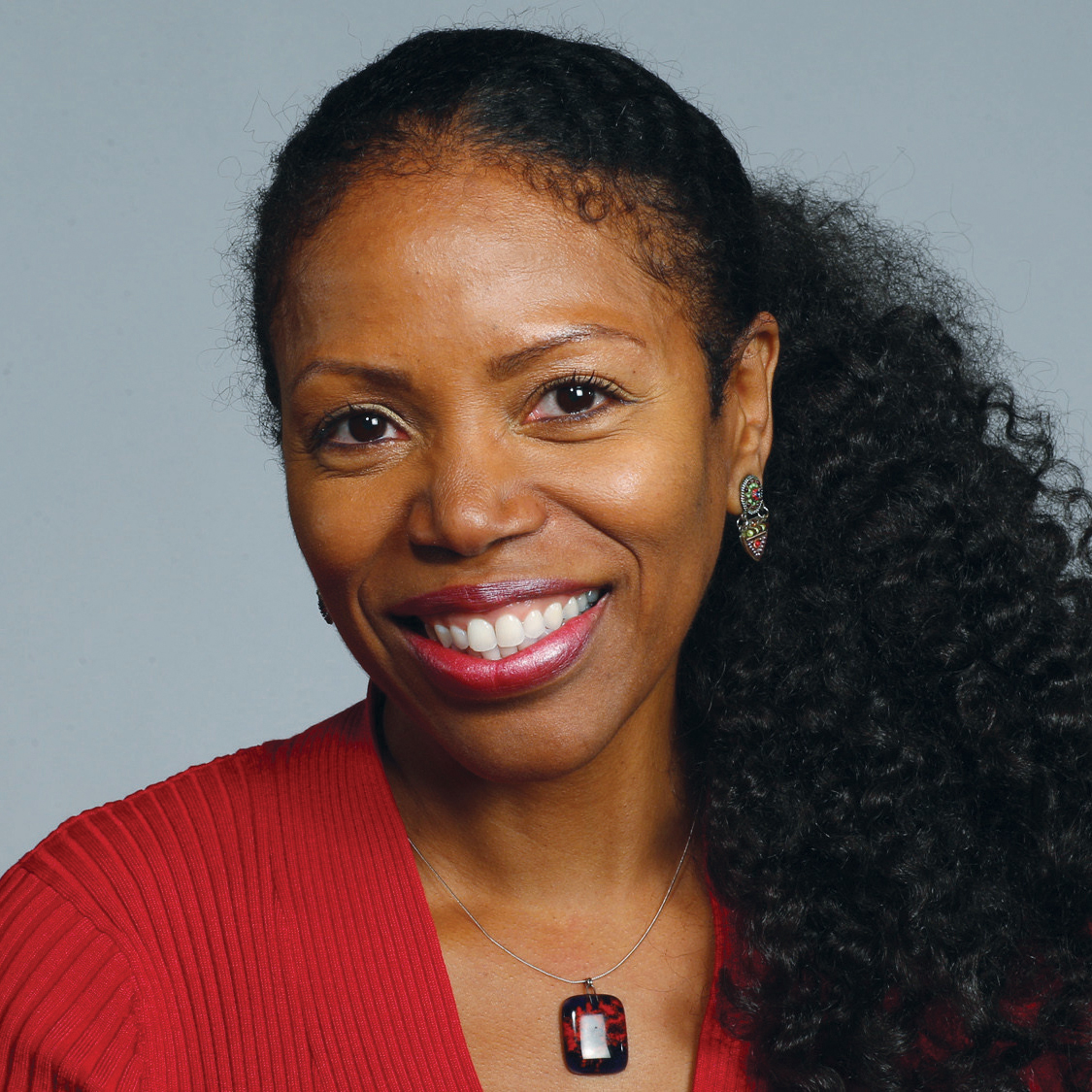
Cast member Chadwick Boseman poses at the premiere of "Black Panther" in Los Angeles
This is a story about heroes and we’ll talk about journalism in a minute, but first let’s go to the movies. A lot has been said about “Black Panther” being a groundbreaking superhero film with a predominately African-American cast that has shattered box office records. Since its release a couple of weeks ago, it’s made more than $800 million worldwide.
But let’s talk about the movie’s positive black images. That’s what really gives it cultural resonance and relevance, and provides a lesson for journalists covering African-Americans and African-American communities. It’s the movie’s positivity that has non-Marvel Comic fans like me ready to strike a superhero pose.
For years, African-Americans have been clamoring for stories (real and imagined) that depict a fuller spectrum of our community with storylines that reveal our many shades.
Beyond that, and here’s what I believe is really key, we’ve been desirous of films with complex characters where we are the heroes—where we save the day. And, I’m not just talking about protagonists who wear form-fitting body suits and have high-tech gadgets. I’m referring to everyday humans who perform incredible feats in everyday situations.
Where “Black Panther” excels is that it’s an unapologetic commentary on the black condition and black power—more specifically, how to make the most of that power if you’re among the few endowed with it. The high stakes in this superhero movie speak to the obligation that those of us with means have to help those of us who exist on the margins.
“Black Panther” also soars by elevating the black family. It shows love and loyalty between black men and black women; between fathers and their sons; between a brother and his sister; between a mother and her children; and the love and respect among bad-ass black women, luminescent with their bald heads, full lips, and chiseled bodies.
And when screenwriters Ryan Coogler and Joe Robert Cole do confront our pathologies: black fatherlessness; the reasons some black men are angry; the reasons some act inhumanely, it’s done with great care and empathy and in a way that adds context and depth to their story.
Indeed, academic journals are filled with research on the psychological impact that the overrepresentation of negative black media images has on people. So, that’s not new.
What is new is that Hollywood, which has long been part of this vexing problem, is doing a better job with linking positive black portrayals, which is one thing, to heroism, which is quite another. And this out-of-the-box approach has led to some muscular box office returns.
Consider Jordan Peele’s comedy-horror film “Get Out.” Yes, it’s a smart, scary movie: Timely in the way it depicts folks’ enduring assumptions about black male virility and athleticism. Poignant in the way it reveals what those assumptions say about us—that the boogie man within remains far more insidious than the one without.
But “Get Out” is important because it has given us something that’s all too rare on the big screen—an African-American male hero who, despite NOT being connected to drug dealing or gang banging, is complex and thoughtful and engaging. Add to that, lead actor Daniel Kaluuya as Chris Washington has an endearing friendship with another brother, Lil Rel Howery as Rod Williams, who is hilarious as all—wait for it—get out.
I’d argue that one reason the movie has done so well, grossing more than $250 million worldwide, is that it ends with a black man saving the day. Can you imagine “Get Out” ending with the white antagonists somehow pulling out a win, and it still being the juggernaut it was? I can’t.
We want our heroes.
Consider the blockbuster “Hidden Figures,” the true story about NASA’s African-American female mathematicians, which grossed about $236 million worldwide. It was a powerful movie about brilliant women most of us had no idea existed. What a shame, right?
But, alas, Hollywood couldn’t help but insert a white male character with a lengthy storyline in a story about black women. Imagine “Hidden Figures” without the moment where Kevin Costner as Al Harrison dons his superhero cape and ends the Jim Crow bathroom situation. It’s a scene that was not in the book on which the movie is based. The scene was inserted to say what? White men do valiant things? We know that story. We’ve seen those movies. Many of them with Kevin Costner.
We need black heroes.
Now, let’s talk about journalism.
To be clear, I’m not at all arguing against stories about the struggles of black folks. I’m just saying that we need more stories that put those struggles into context and highlight their heroes. There are always heroes.
I’ll never forget the 41-year old Chicago man I met more than a decade and a half ago who was a self-acknowledged former “thug,” who fought for three years to get his daughter out of the foster care system. A hero!
Black power is about black agency and that feeling many people have in so many communities that they can make a difference, despite insufficient resources and against overwhelming odds.
Ebony magazine editor and founder John H. Johnson knew this when he wrote in the magazine’s 1945 inaugural issue, “Sure, you can get all hot and bothered about the race question (and don’t think we don’t) but not enough is said about all the swell things we Negroes do and accomplish.”
There are reporters doing some great work in this regard; it’s just that we need much more of it.
Why does this matter eight years after having an African-American man elected as the leader of the free world? It matters because the negative images of black men (especially in news coverage) continue to outweigh and outdistance the positive ones.
It matters because a 2011 study by The Opportunity Agenda titled “Media Representations and Impact on the Lives of Black Men and Boys” found what it called “a troubling link” between negative media portrayals and “lowered life chances for black males.”
It matters because how America sees us and how we see ourselves affects our life prospects, the quality of education and health care we receive, the careers we are able to pursue and our opportunities for promotions and advancement.
It matters because it affects where we live, how we live, and whether, ultimately, Black Lives Matter.


